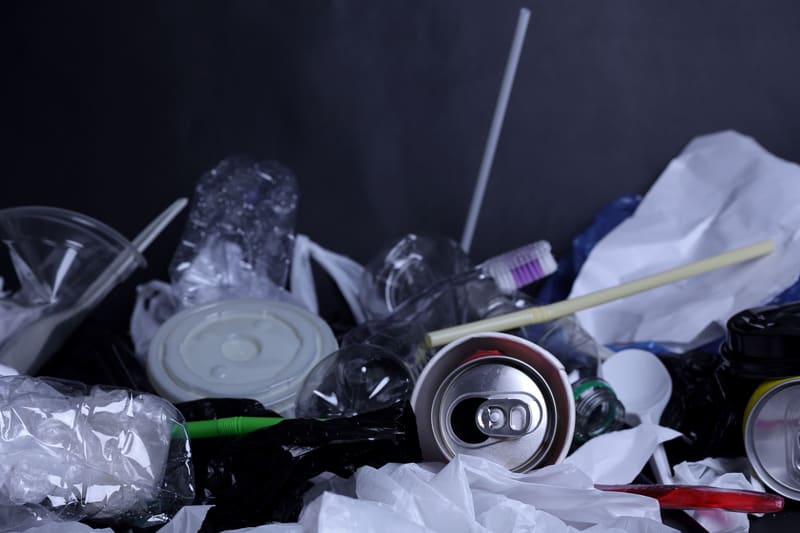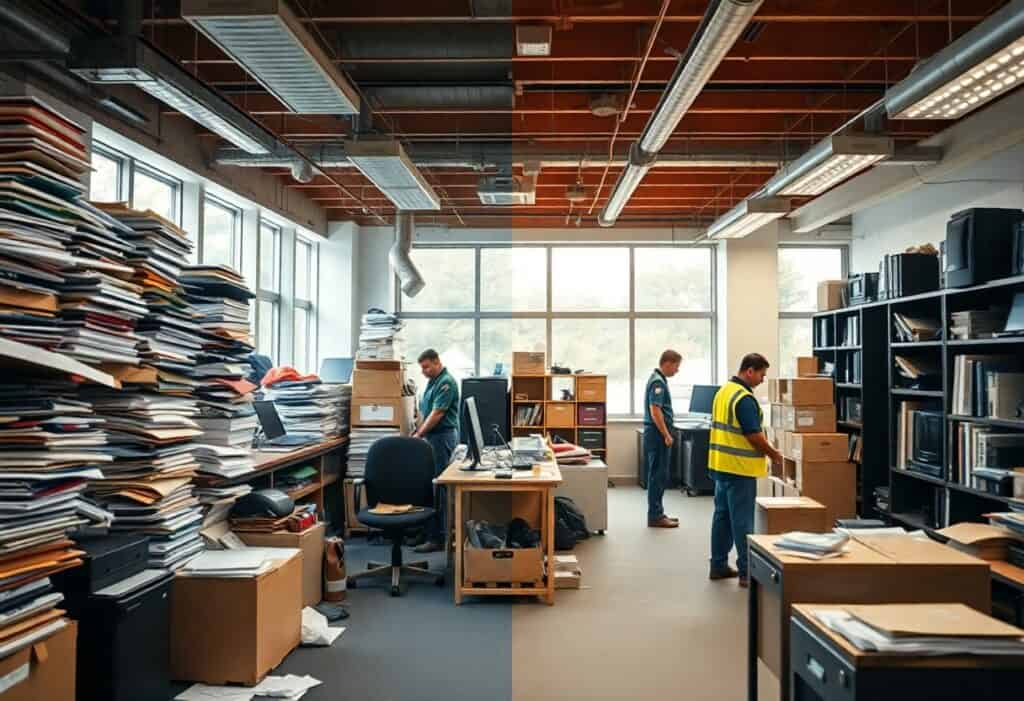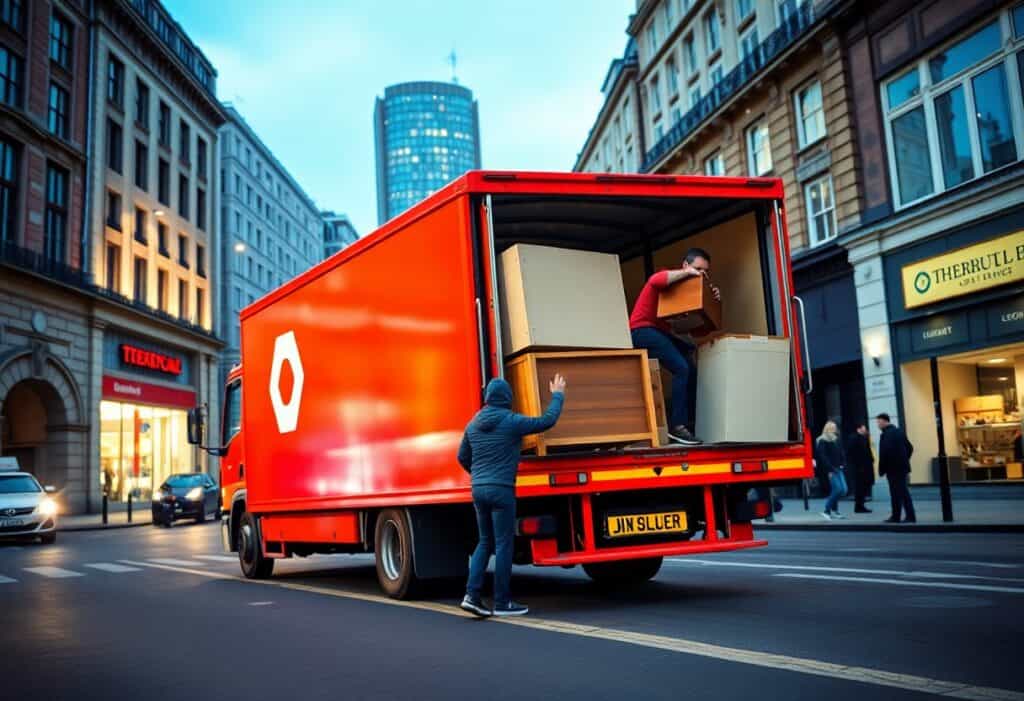Why reducing your waste is important
Waste reduction is important for many reasons. It conserves resources, reduces pollution, saves energy, reduces greenhouse gas emissions, and can be economical. Practicing waste reduction can also reduce the amount of trash that goes to landfills.
It’s better for the environment
When you reduce your waste, you’re also reducing your carbon footprint. Landfills and incinerators are responsible for approximately 3.5% of human-related greenhouse gas emissions worldwide. That might not sound like a lot, but it’s more than the entire aviation industry!
When organic material ends up in a landfill, it decomposes and releases methane, a greenhouse gas that’s over 20 times more potent than carbon dioxide. If organic waste is incinerated, it releases carbon dioxide and contributes to climate change.
Preventing food waste is especially important, since organic material makes up a large percentage of total waste. It’s estimated that every year, 1.3 billion tons of food — or one-third of the total food produced — is wasted globally. Reducing food waste can have a major impact on reducing your carbon footprint and helps fight climate change.
In addition to reducing greenhouse gas emissions, reducing your waste is also good for the environment in other ways. It conserves resources like water, energy, land, and forests. It also reduces pollution from landfills and incinerators.
Every little bit counts when it comes to reducing your waste and helping the environment. Small changes in your everyday routine can add up to make a big difference!
It can save you money
In addition to being good for the environment, reducing your waste can also save you money. For example, by recycling and composting, you can reduce the amount of garbage you have to pay to have hauled away. And by avoiding disposable products, you can save the money you would have spent on those items.
How to reduce your waste
Waste reduction is important for many reasons. It conserves resources, reduces pollution, saves energy, reduces greenhouse gas emissions, and extends the life of landfills. Reducing your waste is also good for your wallet. It saves you money by reducing the amount of garbage you have to pay to get rid of.
Recycle
Recycling is one of the easiest ways to reduce your waste. By recycling, you can help keep harmful materials out of landfill and prevent pollution.
There are many benefits to recycling, including:
-Reducing your environmental impact
-Saving energy
-Saving resources
-Creating jobs
Recycling is easy and there are many ways to do it. You can recycle paper, plastic, glass, metal, and more. To get started, all you need is a recycling bin or bag.
Compost
Composting is the process of decomposing organic matter, such as food waste, into a nutrient-rich soil amendment that can be used to improve the health of your garden. Not only is composting a great way to reduce your carbon footprint, but it can also save you money on expensive fertilizer and reduce the amount of landfill waste.
There are many different ways to compost, but the most important component is ensuring that you have a mix of both “green” and “brown” materials. Green materials are high in nitrogen and include items such as fruit and vegetable scraps, coffee grounds, and grass clippings. Brown materials are high in carbon and include items such as dead leaves, twigs, and newspaper. A good ratio of green to brown materials will ensure that your compost pile decomposes quickly without emitting offensive odors.
Once you have a mix of green and brown materials, there are several different methods you can use to compost them. One popular method is using a food digester, which uses worms to aerate the compost pile and accelerate decomposition. Alternatively, you can build a simple compost bin out of wood pallets or wire fencing. If you live in an apartment or do not have enough space for an outdoor compost bin, there are many indoor options available as well.
Regardless of which method you choose, it is important to regularly turn your compost pile so that oxygen can reach all the material inside. This will speed up decomposition and prevent problems such as odor or pests. With a little care and attention, you can easily turn your kitchen scraps into valuable garden fertilizer!
Reduce your consumption
The first step to reducing your waste is to consume less. This means being mindful of your purchases and only buying what you need. When you do need to buy something, try to purchase items that have little or no packaging, or that can be reused or recycled. Items made from sustainable materials are also a good option.
Another way to reduce your waste is to avoid single-use items. This includes disposables like straws, coffee cups, and water bottles. If an item can only be used once and then thrown away, it’s best to avoiding using it altogether. Opt for reusable items instead.
Finally, you can reduce your waste by composting. This means collecting your food scraps and other organic materials, and turning them into nutrient-rich soil. Composting is a great way to reduce your environmental impact, as it helps to keep organic matter out of landfills where it emits methane gas.
What to do with your waste
Landfills
Landfills are sites where waste is buried under the ground. They are the oldest and most common type of waste disposal.
Most landfills in the United States are now well-managed facilities that are closely monitored and regulated by state and federal environmental agencies. These agencies set standards for the types of waste that can be buried, how the waste must be prepared, how the landfill must be operated and closed, and how the surrounding environment must be protected.
Landfills are usually built in layers. Each layer is compacted before new waste is added. This helps to keep down odors and pests, and to keep the waste from decomposing too quickly.
When a landfill is no longer needed, it is closed by capping it with a layer of soil or other material. The site is then monitored to make sure that there are no problems with pollution or pests.
Incineration
Incineration is a waste treatment process that involves the combustion of organic substances contained in waste materials. Incineration and other high-temperature waste treatment systems are described as thermal treatment.
Incineration of waste materials converts the waste into ashes, flue gas and heat. The flue gases must be cleaned of gaseous and particulate pollutants before they are dispersed into the atmosphere. Heat generated by the combustion process can be used to generate electric power or provide heat for industries and homes.
Recycling
Most people are aware that recycling is important, but many don’t know why. Recycling conserves natural resources, saves energy, reduces pollution and helps create jobs.
Natural resources:
It takes a lot of energy and water to mine, process and transport virgin materials to manufacture products. Recycling conserves these precious resources and reduces the strain on our environment.
Energy:
The process of recycling aluminum cans saves 95% of the energy needed to make new cans from scratch. Making products from recycled materials generally requires less energy than making them from virgin materials.
Pollution:
Recycling reduces pollution by diverting waste from landfills and incinerators. Burning trash is one of the leading causes of air pollution, and landfills produce methane gas, which is a powerful greenhouse gas.
Jobs:
In the United States alone, recycling and reuse industries employ more than 1 million people.
Reducing your waste has never been more important – for our environment, our economy and our future.
How to dispose of your waste
Disposing of your waste is important for many reasons. It can help to reduce environmental pollution, conserve resources, and prevent the spread of disease. There are a few different ways to dispose of waste, and each has its own advantages and disadvantages.
Hazardous waste
Hazardous wastes are those that can potentially cause harm to human health or the environment. They are usually classified as corrosive, combustible, toxic or reactive.
There are many ways to reduce the amount of hazardous waste you generate. You can start by buying only what you need and using up what you have before buying more. You can also look for products that have less packaging, or that come in recyclable packaging. Buying in bulk can also help reduce packaging waste.
When it comes time to dispose of hazardous waste, it is important to do so safely. Never pour hazardous liquids down the drain or into the ground. Dispose of them through a municipal hazardous waste program or a private company that specializes in waste disposal.
Non-hazardous waste
Non-hazardous waste is any waste that does not pose a significant threat to public health or the environment. This type of waste can be disposed of in a variety of ways, including:
-Recycling: This is the process ofTurning waste into new products to prevent pollution and conserve resources.
-Composting: This is the process ofBreaking down organic matter, such as food scraps and yard waste, into nutrient-rich soil amendment.
-Reuse: This is the act ofUsing an item more than once or finding a new use for it instead of throwing it away.
-Landfilling: This is the process ofDisposing of waste in a specially designed and regulated area.



